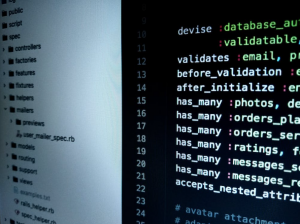
Introduction
Electronics has become an integral part of our daily lives, and the world of DIY electronics projects offers an exciting opportunity to explore, learn, and create. Whether you’re a seasoned electronics enthusiast or a beginner looking to dive into this fascinating field, DIY electronics projects provide a platform for innovation and personal growth. In this article, we’ll explore the world of DIY electronics, discuss the benefits, and provide some exciting project examples to get you started on your electronic journey.
Benefits of DIY Electronics Projects
- Learning Opportunity: DIY electronics projects provide a hands-on way to learn about the principles of electronics. You can understand the fundamental concepts of electricity, circuits, components, and more.
- Creativity and Innovation: These projects allow you to unleash your creativity by designing and building your electronic devices. You can invent new gadgets, improve existing ones, or customize electronics to suit your needs.
- Problem-Solving Skills: Electronics projects often involve troubleshooting and problem-solving. When your project doesn’t work as expected, you’ll develop valuable skills in diagnosing issues and finding solutions.
- Cost Savings: DIY projects can be more economical than purchasing pre-made electronics. Plus, you can repurpose components from old or broken devices, reducing waste.
- Personal Satisfaction: Completing a DIY electronics project is highly rewarding. It’s a tangible manifestation of your skills and creativity, which can boost your self-esteem and confidence.

DIY Electronics Project Examples
- LED Blinking Circuit
A simple project for beginners is the LED blinking circuit. All you need are a few basic components like LEDs, resistors, a breadboard, and a battery. You can create various patterns by changing the resistor values and connections, allowing you to experiment with different LED configurations.
- Arduino-Based Weather Station
For those looking to delve deeper into electronics, an Arduino-based weather station is an excellent project. You’ll use an Arduino microcontroller, various sensors (temperature, humidity, pressure), and a display to create a device that provides real-time weather information. It’s a great way to learn about microcontrollers, sensor integration, and data display.
- DIY Bluetooth Speaker
Building your Bluetooth speaker is a more advanced project that involves designing a speaker enclosure, selecting the right audio components, and integrating Bluetooth connectivity. This project combines woodworking skills with electronics, resulting in a functional and customized speaker.
- Home Automation System
To explore the world of home automation, consider building a DIY home automation system. You can control lights, appliances, and more using platforms like Raspberry Pi or ESP8266/ESP32 microcontrollers. It’s a complex project but offers a glimpse into the smart home technology of the future.
- Raspberry Pi Retro Gaming Console
If you’re a gamer, you can create your retro gaming console using a Raspberry Pi, retro gaming software, and a display. This project allows you to relive the nostalgia of classic games while honing your skills in programming and hardware integration.
Conclusion
DIY electronics projects offer a wide range of opportunities for learning, creativity, and personal growth. Whether you’re just starting or you’re an experienced enthusiast, there’s always something new to explore in the world of electronics. The benefits are numerous, and the satisfaction of bringing your electronic creations to life is truly rewarding. So, grab your tools, components, and ideas, and embark on your DIY electronics journey today!







